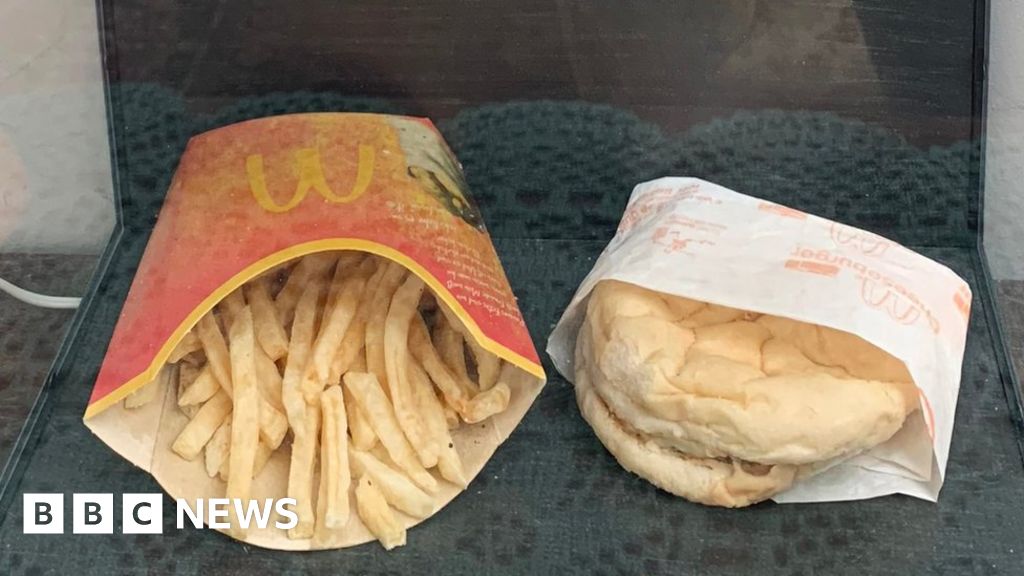When McDonald's closed all its restaurants in Iceland in 2009, one man decided to buy his last hamburger and fries.
"I had heard that McDonald's never decompose so I just wanted to see if it was true or not," Hjortur Smarason told AFP.
This week, it's 10 years since the seemingly indestructible meal was purchased, and it barely looks a day older.
 Curious observers can watch a live stream of the burger and fries from its current location in a glass cabinet in Snotra House, a hostel in southern Iceland.
Curious observers can watch a live stream of the burger and fries from its current location in a glass cabinet in Snotra House, a hostel in southern Iceland.
"The old guy is still there, feeling quite well. It still looks quite good actually," the hostel's owner Siggi Sigurdur told BBC News.
"It's a fun thing, of course, but it makes you think about what you are eating. There is no mould, it's only the paper wrapping that looks old." (...)
Pictures posted on social media sparked discussion of other robust foods that have resisted the ravages of time.
"The health teacher in our high school did this, but just left them on a shelf," commented one Twitter user.
"He would point out how even after years they didn't grow mould because apparently there weren't even enough nutrients in it for microbes."
by Georgina Rannard, BBC | Read more:
Image: BBC
"I had heard that McDonald's never decompose so I just wanted to see if it was true or not," Hjortur Smarason told AFP.
This week, it's 10 years since the seemingly indestructible meal was purchased, and it barely looks a day older.
 Curious observers can watch a live stream of the burger and fries from its current location in a glass cabinet in Snotra House, a hostel in southern Iceland.
Curious observers can watch a live stream of the burger and fries from its current location in a glass cabinet in Snotra House, a hostel in southern Iceland."The old guy is still there, feeling quite well. It still looks quite good actually," the hostel's owner Siggi Sigurdur told BBC News.
"It's a fun thing, of course, but it makes you think about what you are eating. There is no mould, it's only the paper wrapping that looks old." (...)
Pictures posted on social media sparked discussion of other robust foods that have resisted the ravages of time.
"The health teacher in our high school did this, but just left them on a shelf," commented one Twitter user.
"He would point out how even after years they didn't grow mould because apparently there weren't even enough nutrients in it for microbes."
by Georgina Rannard, BBC | Read more:
Image: BBC